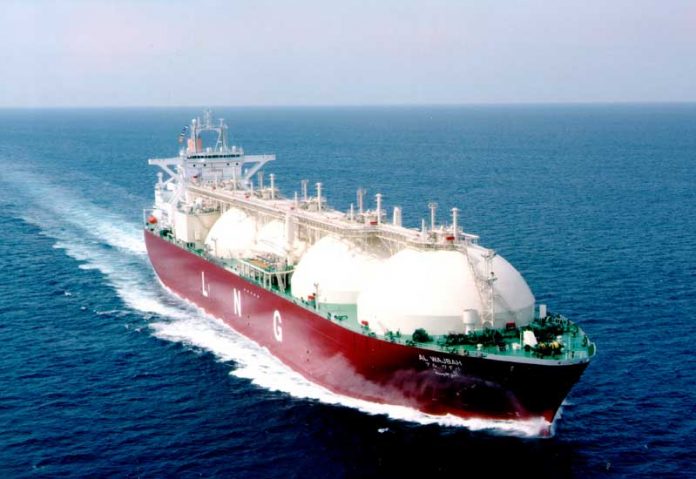ISLAMABAD: In a bid to reduce the financial burden of purchasing liquefied natural gas (LNG) from the global market, the federal government has decided to buy one LNG cargo per month from Azerbaijan’s state-owned company, SOCAR, through a government-to-government agreement.
According to sources of Petroleum Division, the Economic Coordination Committee (ECC) of the Cabinet on Monday is expected to grant approval to sign the agreement between Pakistan LNG Limited (PLL), a subsidiary of the Petroleum Division, and State Oil Company of Azerbaijan Republic (SOCAR), SOCAR Trading and its subsidiaries, further advancing the collaboration between the two nations.
Upon obtaining the necessary approvals, PLL and SOCAR will enter into an agreement that will enable the purchase of LNG from SOCAR at a price lower than the prevailing spot rates in the international market. The Ministry of Law has already given permission for PLL to engage with SOCAR’s subsidiaries and negotiate the contractual details.
Under the proposed framework agreement, SOCAR will provide PLL with information regarding the availability and pricing of LNG cargo on a monthly basis. PLL will carefully assess the global market conditions and the power sector’s requirements before committing to the purchase. Notably, the LNG cargo will be sold to Pakistan at a rate below the spot rate. PLL will facilitate payment by opening a letter of credit (LC) in a local bank, with SOCAR covering the confirmation charges of the international bank.
Pakistan is currently procuring eight cargoes per month from Qatar and one cargo per month from ENI Company under long-term agreements. However, due to high prices in the global market and Pakistan’s credit rating downgrade, PLL faced challenges in securing LNG cargoes through spot and midterm contracts between February and September last year.
This recent decision aligns with a cooperation agreement signed between Pakistan and Azerbaijan, focusing on energy collaboration. The move holds immense significance for Pakistan, as it aims to ensure a reliable and cost-effective LNG supply while reducing its dependence on the volatile global market.
The approval of the framework agreement between PLL and SOCAR marks a pivotal step in Pakistan’s pursuit of energy security and economic stability. By forging stronger ties with Azerbaijan and leveraging government-to-government arrangements, Pakistan is taking proactive measures to meet its LNG demands efficiently and at a reduced cost, ultimately benefiting both the nation’s economy and its citizens.
It is pertinent to mention that former Federal Minister of Petroleum Shahid Khaqan Abbasi had earlier signed an agreement with Azerbaijan for cooperation in the field of energy.
Besides, ECC of the Cabinet on Monday is scheduled to take up 22 agenda items including issuance of GoP guarantee amounting to PKR 9,500 million for construction of Hyderabad-Sukkur Motorway Project on Build-Operate-Transfer basis, financial assistance to the Shuhada and injured persons of Swat incident, approval for sale of damaged wheat of PASSCO, import of foreign supplier’s account through custom bonded storage facilities, allocation of Rs 12 billion for procurement of relief items for re-stocking of NDMA warehouses etc.

























By forging stronger ties with Azerbaijan and leveraging government-to-government arrangements, Pakistan is taking proactive measures to meet its LNG demands efficiently and at a reduced cost, ultimately benefiting both the nation’s economy and its citizens.